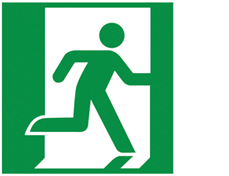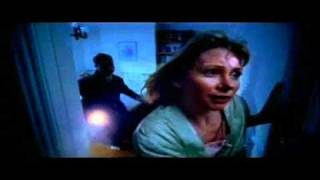
What to do in case of a fire

-
Notify every member in the residence of the fire.
-
Get out of the house as quickly as possible.
-
Cover your mouth and nose with a cloth (wet if possible).
-
Don’t investigate the fire.
-
Stay close to the floor. Smoke and hot gases rise.
-
Keep doors and windows closed. Open them only if you
have to in order to escape. -
Take short shallow breaths.
-
Call the Fire Brigade on 999 as soon as possible from outside the house.
-
Never go back inside the building until a member of the Fire Service has told you it is safe to do so.
In the United Kingdom alone, there are an estimated 300,000 dwelling fires each year, of which 180,000 start in the kitchen. Of the 55,000 dwelling fires reported to the Fire and Rescue Service, the average cost is £24,900, leading to an economic cost of at least £1.4 billion. Student housing, care homes for the elderly, sheltered accommodation and flats with shared kitchens are all high-risk categories. UK Government research suggests that socially deprived households are 31 times more likely to suffer fires than households in general. This guide gives advice on how to avoid fires and ensure people’s safety if a fire does start. For more information contact your local Fire Brigade, many fire and rescue services in England offer free home fire risk checks.
Smoke alarms are vitally important to the safety of a household. A smoke alarm is an early warning device, when used correctly it can give inhabitants valuable extra time to escape. They are cheap, easy to get hold of and easy to fit and should be tested every week. Malfunctioning smoke detectors can cause frustration and ultimately, make smoke detectors less effective. The best way to avoid false alerts is to choose detector locations carefully. Do not locate smoke detectors in kitchens. Steam from cooking can trigger an alarm. A heat detector is the correct device for detecting fires in kitchens and garages.
Kitchen fires account for more than half of accidental fires in the home and around 70 per cent of these are cooking related. The cause is often ovens or hobs being accidentally left on, as well as chip pans and flammable items being left too close to cookers. A large number of serious kitchen fires also begin when people have been drinking. The best way to prevent a kitchen fire is to stay near the cooker whenever you are cooking something. Keep your stove and oven clean and be sure to move anything that can burn at least 3 feet away from the heat.
Preparing and practising a plan of action will help you act quickly if there’s a fire in your home – it could even save your life. Agree your first escape route - the best option is the normal route in and out of the home. Choose a second escape route to use if the second one is blocked and keep both routes clear of obstructions. Decide where the keys to doors and windows should be kept, ensure everyone knows where they are kept and always keep them there.
Electrical appliances, plugs and cables that are old or poorly wired can be a real risk. Just because there’s no flame, doesn’t mean there’s no fire risk. Don't overload sockets, try to keep to one plug per socket as too many electrical appliances plugged into one socket can overload it, which can cause overheating.
More people die in fires caused by smoking than in fires caused by anything else. Tobacco is manufactured to stay alight, and therefore can remain smouldering and start a fire. Always stub cigarettes out properly and dispose of them carefully.
Active fire protection can make your home safer from fires. Its aim is to aid in the control of dwelling fires and thus provide improved protection against injury, life loss and property damage.


